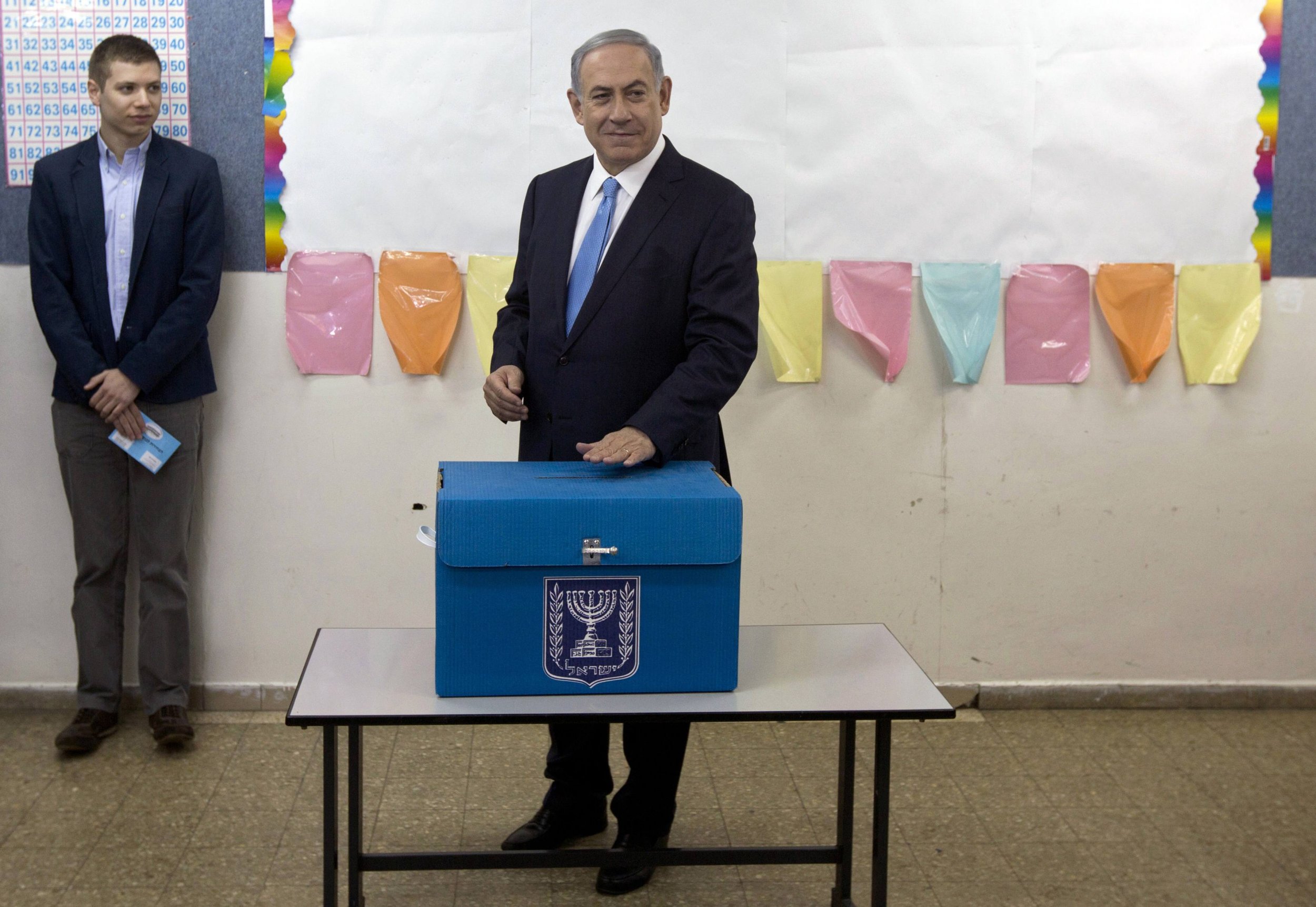
The results are in. One can say that the Israeli people have spoken. However, as one commentator this evening stated more accurately— the people have mumbled. The results provide no clear mandate of who the Israeli people want to lead.
Prime Minister Benjamin Netanyahu came back from a low point in the polling where it seemed his political career might be at an end. Now, (based on exit polls) the Likud has won as many seats as the Labor party. However, Netanyahu's rise was at the expense of the other right-wing parties (from which he took many of his votes). According to the exit polls, both the Zionist Camp and the Likud have 27 seats in the next Knesset.
For the average Israeli, polling day was a holiday. It was one of the rare days on the calendar marking a public holiday that is not a Jewish holiday. Most Israelis took advantage of the beautiful weather to spend a day outside with their families. Others flocked to the open malls. In Tel Aviv, the cafes were brimming with people. There was a sense of optimism in the air—optimism that everyone knew might be dashed by the evening.
For politicians, polling day was the last desperate chance to get out the vote. The two major parties followed the same script, i.e. talking to their base, trying to convince them that the ship is sinking and the other side has the advantage … unless they come out and vote.
Netanyahu stepped over a line when he came out with a warning: Arab Israelis, he said, were being bused to vote in large numbers, and as a result there was an urgent need, now more than ever, for his supporters to cast their ballots for him.
Over the course of the last few days, Netanyahu pulled every trick in the book to appeal to his base—including an announcement that he rejects the idea of a Palestinian state. Instead of appealing to the center, as most politicians do in a general election, he chose to veer right for the last few days.
It worked. Netanyahu managed to take voters from both Bayit HaYehudi (which got only eight seats, as opposed to the 12 seats they held in the previous Knesset) and Yisrael Beteinu (who dropped to five seats from 11 seats in the last Knesset.)
Meanwhile, the Labor leader, Yitzhak Herzog, was stuck in a similar but slightly different dilemma. He needed to make sure he received enough of votes from the left to give him more votes than Likud while continually cognizant that if the leftist Meretz party failed to reach the threshold of votes required to enter the Knesset, the left in general would lose those votes.
We now see that this approach worked even better than expected. It seems Meretz ended up with five seats—one more than the four required to enter the Knesset.
So where do we stand? Anyone who claims they know for sure is lying. Whoever former Likud member Moshe Kachlon, who now leads the Kulanu party which won ten seats, ends up supporting will most likely become prime minister.
Kachlon, the communications minister under Netanyahu, left the Likud because he could not get along with Netanyahu. Then on polling day, the Likud used a sound recording that Kachlon made three years ago calling on people to vote for the Likud to suggest Kachlon was still supporting his old party.
The Central Election Committee stopped Likud from misrepresenting Kachlon so obviously and fined them for overstepping the mark. But the incident left Kachlon fuming. As a result, who Kachlon is going to support is unclear. He said he would wait until Thursday, when the official results are in, to decide what to do.
For those who thought the Israeli election season was over, this is just the end of the first act. Now we enter the second and decisive act—creating a coalition.
In the next step, each of the parties will tell President Reuven Rivlin who they wish to be prime minister. Then the president will ask a party leader to try to form a governing coalition. Whoever is chosen then has 42 days to gain the 61 votes needed in the Knesset to support the new government.
Usually the person the president picks succeeds, although there have been cases when they have failed. If that happens, the prospective prime minister can ask for an extension, or the president can ask someone else to try to form the government.
The result this time is impossible to guess. We may end up with a right-wing government. We may have a center-left government. Or— and it is hard to imagine—it might even be a coalition of Netanyahu's Likud and Herzog's Zionists.
Historian Marc Schulman is the editor of historycentral.com. An archive of his reports from Tel-Aviv can be found here.
Uncommon Knowledge
Newsweek is committed to challenging conventional wisdom and finding connections in the search for common ground.
Newsweek is committed to challenging conventional wisdom and finding connections in the search for common ground.
About the writer
To read how Newsweek uses AI as a newsroom tool, Click here.









